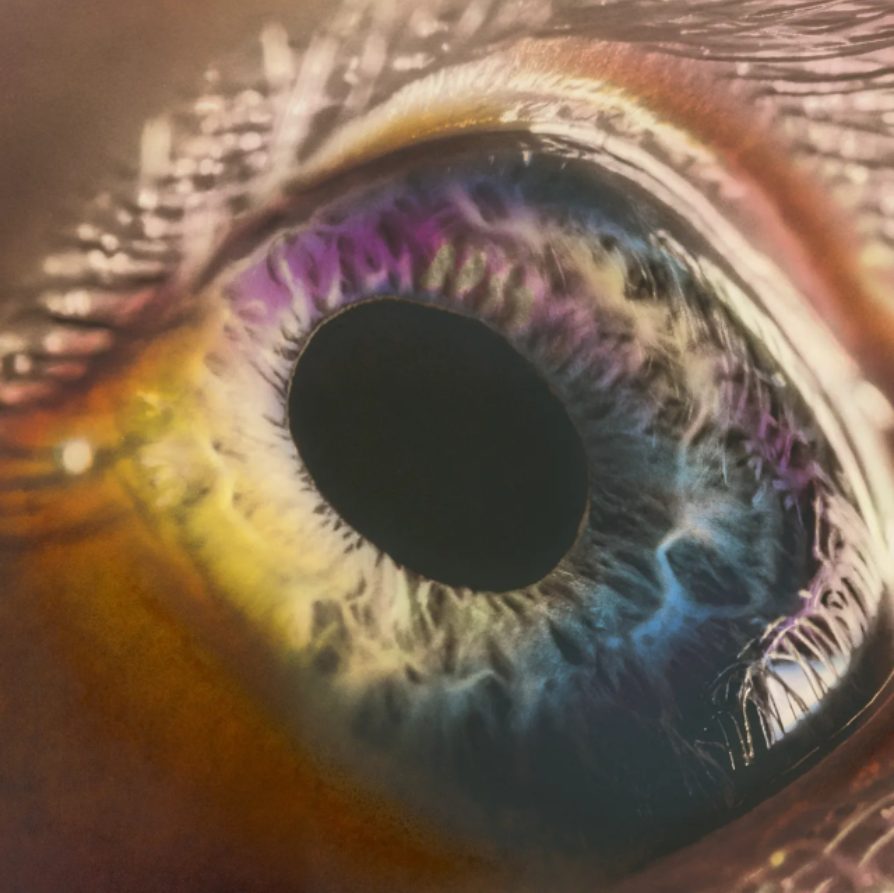Arcade Fire once strode invincibly from album to album. Funeral, Neon Bible, The Suburbs – with each step their ambitions grew bolder, the concepts weightier, and all somehow without collapsing under their own portentousness. A couple of less warmly received LPs took the shine off that mystique. For sure, they were running out of road – there’s only so grandiloquent you can make a rock album and stay on the right side of ridiculousness – but the abrupt turn into the more electronic Reflektor, while inevitable and not unwelcome, made them seem fallible. Then the patchy Everything Now only exacerbated the sense that they’d lost their guiding vision. All artists of any longevity need harder-to-love moments, if only to act as a counterpoint, but more than most Arcade Fire seemed to have gone off the boil.
WE feels conscious of this fact. It eschews the divisive rhythmic and structural quirks of recent efforts, instead re-seeking the tight, unifying spirit of their early years and marrying it to the more electronic sound they’ve been pursuing in recent times. On one level, it’s parodically Arcade Fire. The multi-song suites are back in a flurry of roman numerals and subtitles – End of the Empire IV (Sagittarius A*) being marginally the most ludicrous – and many of their musical tropes are present and correct. On another, it’s a pale and watered down version of what we knew. Once they were preoccupied by big themes – death, childhood, memory. Now it’s mere ennui, and poorly articulated ennui at that:
Age Of Anxiety – even the title’s lacklustre – sees Win Butler trotting out mental health banalities about “the age where nobody sleeps” and how “the pills do nothing for me”. On End of the Empire I there’s the entreaty: “don’t be scared, just chronically impaired”, while fretting over the climate: “watching the moon on the ocean where California used to be”. He goes on, “feeling uninspired, standing at the end of the American Empire,” spelling out the obvious out in case you assumed he meant the Austro-Hungarian or the Ashanti.
Elsewhere, there’s centrist dad tech paranoia: “We unsubscribe! Fuck season five!” (End of the Empire IV (Sagittarius A*)), “Born into the abyss / New phone, who’s this?” (Age Of Anxiety II (Rabbit Hole)). Sometimes it’s mental health and tech paranoia rolled into one – “The dreams in your head the algorithm prescribed”. Tech messes with your mental health. And the climate’s in a mess. Yeah, we get it. But we also get it. Every day. Constantly. On multiple platforms. Whether we want it or not. All of this has swirled round our brains all hours of the day for many years. Do we need our favourite bands to blandly restate it?
Nor does WE have the musical emotional range of old. The band used to break you with melancholy, then soar triumphantly, sometimes from one song to the next. The dynamic shifts and tempo changes on this album may all be staged for impact, but they lack the soul to deliver it. Where once were peaks and troughs of strongly felt emotion, is now a morass of generalised feels. What happened to their cinematic scope and attention-to-detail? You could see the kids and cops of the Sprawl, or the dysfunctional, God-fearing family of Antichrist Television Blues. Nothing comes to the mind’s eye listening to this.
Occasionally, the juxtaposition of organic and robotic puts you in the same uncanny valley as OK Computer, but these beautiful moments are fleeting. The mournful piano versus monotone ‘yeah’ and tinny beats on Rabbit Hole soon gets overwhelmed with the latter; the bright acoustic guitar on the closing title track could use more of the foreign radio sample that introduces it or the space orchestra that quickly appears and disappears in its final moments.
For the most part, those deep textures are gone. The slow-fast segue from The Lightning I to The Lightning II is so contrived, it suddenly hits you what you’re listening to – manufactured pop. In fact, the obligatory Régine Chassagne solo number, Unconditional II (Race and Religion), sounds more like a jumping off point for a solo pop career of her own than anything from the band’s back catalogue. By accident or design, Arcade Fire have ended up in a musical niche – let’s call it dad-pop – that’s well-serviced, and better-serviced, by other bands – Coldplay, War On Drugs, Future Islands. They could all have created this album and done it better.
And honestly, that’s not to damn it. WE is perfectly palatable arena music about the general shitness of stuff, but really – is that all Arcade Fire are now?
